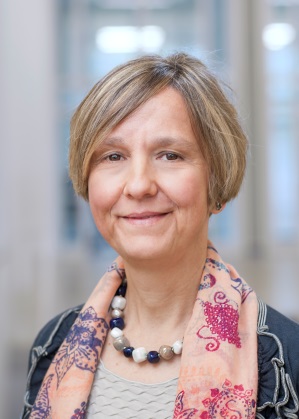Here you can find detailed profiles of DKTK faculty members with programm specification and research focus in the Researcher Database. Find contacts of all DKTK scientists at the DKTK intranet
Researcher Database

Prof. Dr. Katharina Fleischhauer
Institute for Experimental Cellular Therapy
Hufelandstrasse 55
45122 Essen
Program
Cancer Immunotherapy (CI)
Summary
Allogeneic hematopoietic stem cell transplantation (allo-HSCT) is the oldest and clinically most established form of cancer immunotherapy, in which immune cells from a healthy donor engrafted into the patient can provide efficient and long-lasting control of blood cancer cells surviving after chemotherapy. An important cellular subset mediating this graft-versus-leukemia (GvL) effect is represented by alloreactive T-cells recognizing mismatched histocompatibility (HLA) antigens on patient cells. Since mismatched HLA can be expressed both on neoplastic cells and on healthy tissues, the downside of GvL is graft-versus-host-disease (GvHD), one of the most relevant clinical complications after allo-HSCT. A better understanding of the molecular mechanisms underlying T-cell alloreacitivity is warranted to identify new strategies for dissecting GvL from GvHD, and for characterizing mechanisms of specific immune escape of relapsing blood cancers after allo-HSCT.
The University Hospital Essen has one of the most active clinical allo-HSCT departments, with over 200 such transplants performed every year. Taking advantage of this unique platform, the main research goals of the Institute of Experimental Cellular Therapy is to provide new insights into the role of peptide antigen processing, structural HLA variability and the alloreactive T-cell-receptor repertoire for GvL and GvHD, with particular regards to new mechanisms of immune evasion post-transplant.